
Bruce Bower
Behavioral Sciences Writer, Science News
Bruce Bower has written about the behavioral sciences since 1984. He often writes about psychology, anthropology, archaeology and mental health issues. Bruce has a master's degree in psychology from Pepperdine University and a master's degree in journalism from the University of Missouri. Following an internship at Science News in 1981, he worked as a reporter at Psychiatric News, a publication of the American Psychiatric Association, until joining Science News as a staff writer. In 1996, the American Psychological Association appointed Bruce a Science Writer Fellow, with a grant to visit psychological scientists of his own choosing. Early stints as an aide in a day school for children and teenagers with severe psychological problems and as a counselor in a drug diversion center provided Bruce with a surprisingly good background for a career in science journalism.

All Stories by Bruce Bower
-
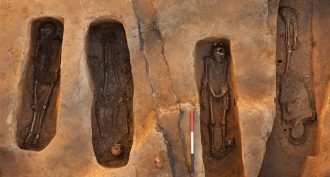 Humans
HumansJamestown: Unearthed graves tell tales of colony leaders
The newly uncovered 400-year-old remains of four leaders of the Jamestown settlement in Virginia reveal details of the notable’s lives — and deaths.
-
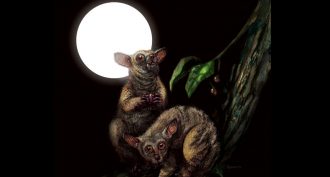 Fossils
FossilsRemains of ancient primate found in Oregon
Scientists have found a few teeth and a fossil jaw of an ancient species of primate. It may be related to modern lemurs or tarsiers.
-
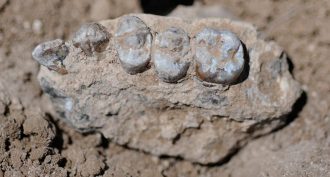 Fossils
FossilsFossil find adds a relative to our family tree
Lucy is the best known of our early ancestors. Now, a new fossil from Ethiopia suggests a second pre-human species lived alongside her kind.
-
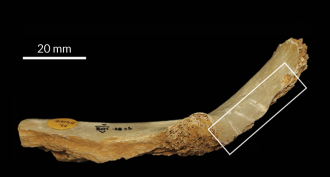 Fossils
FossilsRitual cannibalism occurred in Stone Age England
Stone Age human bones from a cave in England show signs of cannibalism. The people had been eaten during burial rituals nearly 15,000 years ago, experts say.
-
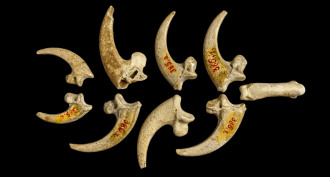 Humans
HumansNeandertals create oldest jewelry in Europe
Adorned with all-natural signs of power: eagle claws. Holes in these claws show that Neandertals had been strung them together, like beads, as jewelry.
-
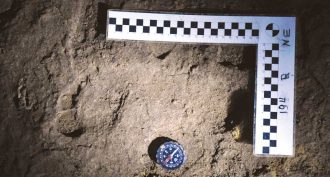 Fossils
FossilsNewly dated footprints: Oldest human tracks?
These footprints, found nearly a half-century ago, may be almost four times older than first thought, scientists now report.
-
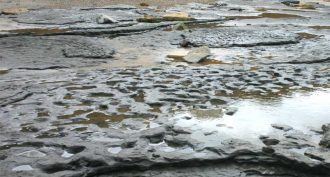 Archaeology
ArchaeologyAncient footprints surface in Britain
There are hints they could have been made by ancestors of Neandertals.
-
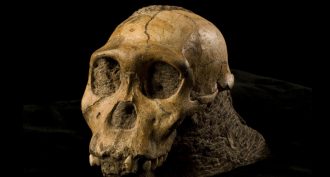 Fossils
FossilsWhere do humans come from?
Some scientists propose a newfound South African species as the most likely ancestor of the line that led to humans. But not everyone accepts that this is where it all began.